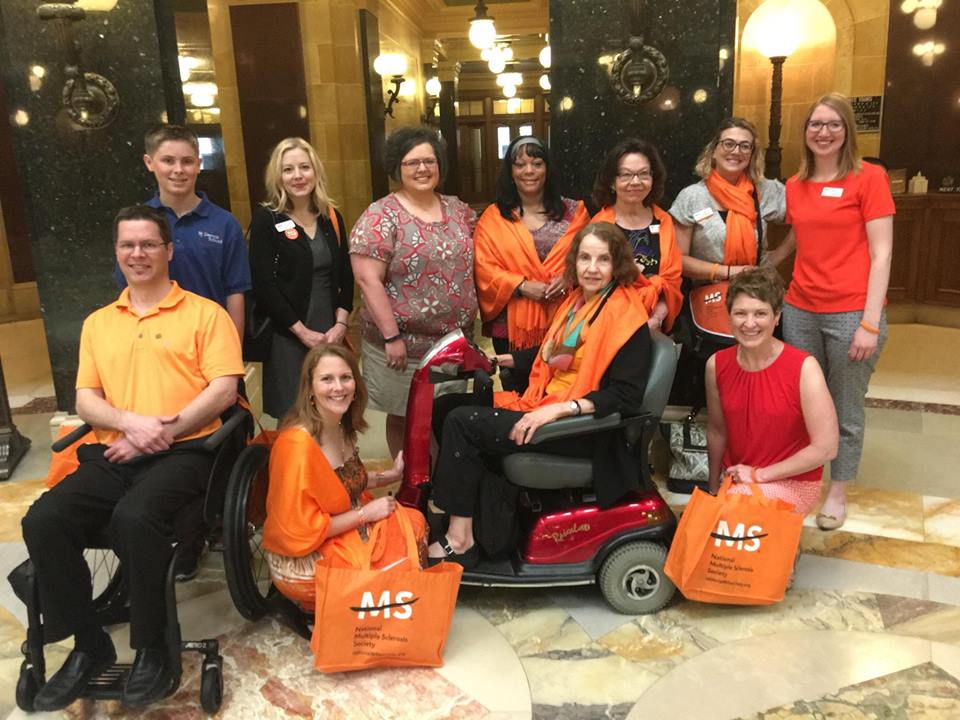Have you ever nodded your head to make someone think you’re following what their saying but really have no clue? You probably don’t even care what they’re talking about.
I often joke that this is really how I’ve gotten through life – I’m just good at seeming interested!
I fear that this is what happens when we talk about “MS Awareness,” though. We talk about it and people close to the disease celebrate “awareness,” but most people don’t really know why we do it.
The common misconceptions remain.
We all know that having an “invisible disease” is physically AND emotionally difficult. It seems that everyone – our loved ones, our friends, and even our physicians – say that they understand.
But they DON’T understand. They might be empathetic, or want to appear to be, but they don’t really “get it.”
What they understand is that we complain about something that they have to take on faith. They have to trust that we’re telling the truth.
Even our doctor’s job is subjective.
Sure – there are some measurements that they take. They do MRI’s and look at patterns and trends, but there is an awful lot of judgement that happens at your appointment.
Your doctor is good at this – probably one of the best. I’m not saying that their opinion isn’t respected – they’re doing the best with what they have to work with – and I’m grateful for that!
But when we talk about MS awareness, what are we raising awareness about? And why?
Our tendency is to explain it to people. To try and make them believe us. Like you’re a three-year-old trying to make your parents see the “owie” that your brother gave you when he pinched you.
Did that ever work? Are you taking advantage? Crying wolf?
We like things that are concrete. We need specifics to assign blame.
You could tell people that in MS the immune system attacks the protective sheath (myelin) that covers nerve fibers and causes communication problems between your brain and the rest of your body… (snore).
That’s what the Mayo Clinic website tells them – if they stay awake.
But it’s too complicated. It’s not bite-sized.
It’s not concrete or active.
There are no cancer cells that we need to kill. There isn’t an artery that requires a stint.
I often just tell people that I have a nerve problem. I don’t elaborate and they usually don’t ask questions. Is that wrong to do?
It’s easier to explain, they get the gist of what the problem is, and I’m not lying to them. I’m just not giving them the whole truth.
But that does nothing to raise awareness, does it?
So would it be wrong to tell people that MS has “taken over my legs?” That I have “MS induced pain?”
Assign blame – Make it concrete!
How about saying that I have “MS-induced ataxia (which covers a lot of ground and explains a lot of symptoms)?” It’s more believable!
Why does it work? It’s ACTIVE.
It’s like saying “I was punched in the jaw” as opposed to “I have a sore back.”
 The former is easier to empathize with. It’s active. There is a cause-and-effect and we can relate – if not from personal experience (like the time I was cold-cocked while playing a video game in sixth grade – I’m not bitter), then certainly from what we’ve seen on TV.
The former is easier to empathize with. It’s active. There is a cause-and-effect and we can relate – if not from personal experience (like the time I was cold-cocked while playing a video game in sixth grade – I’m not bitter), then certainly from what we’ve seen on TV.
Connect the dots – make it active!
When I think of awareness, I think about starting a conversation. About clearing up the confusion and giving them an emotional reference. It’s hard to relate to it, otherwise.
Connect the dots.
Raising money – for research, for scholarships, for assistance, and much more – is a lot easier when you can show the human side of the disease and assign specific blame!
Make it active.
If you can do that, you’re not just telling them that something called Multiple Sclerosis exists – you’re raising awareness!
So get to it – share this post and spread the word – let’s make this the most productive MS Awareness Month ever!
